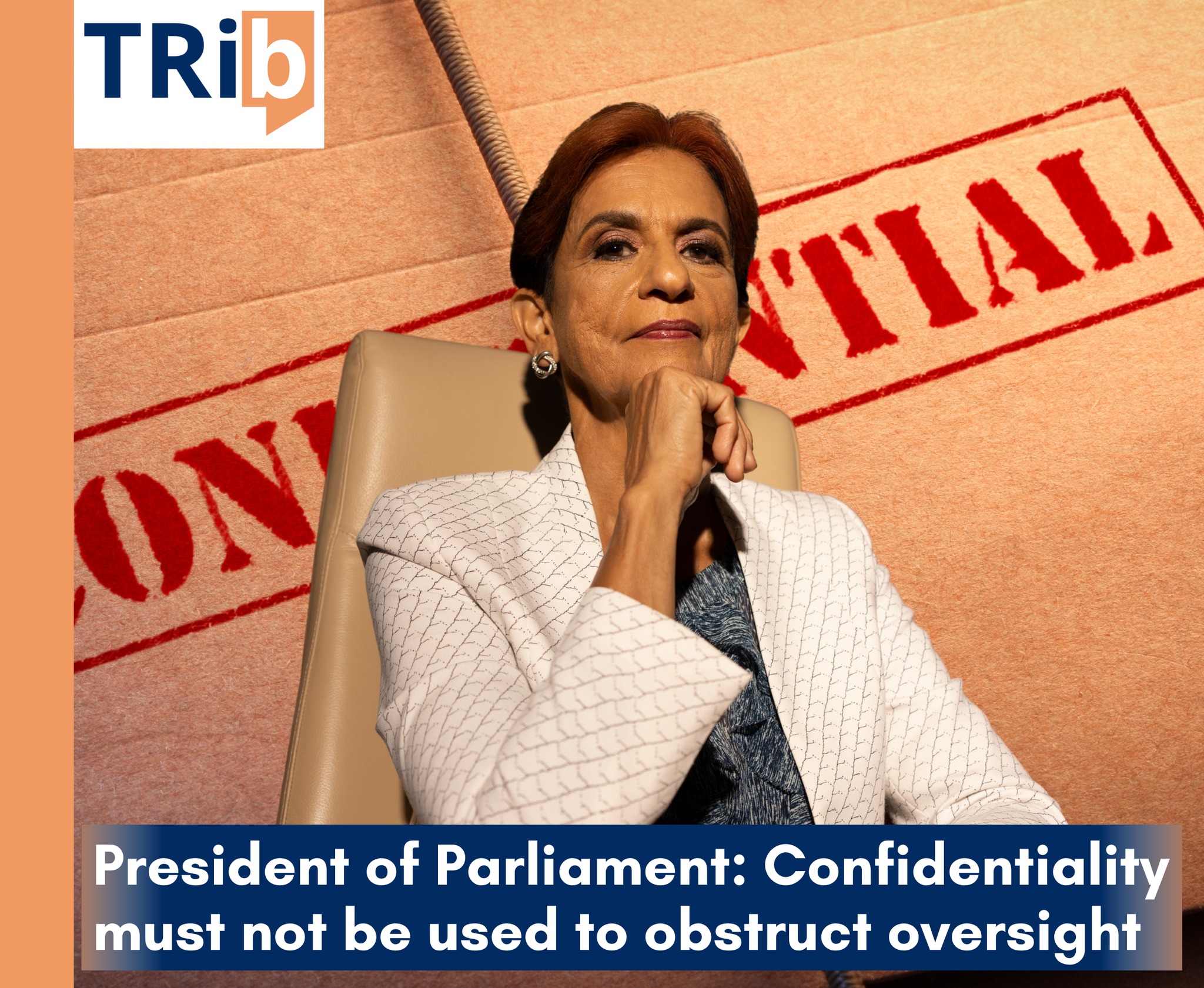
President of Parliament Sarah Wescot-Williams has called for greater restraint in the way government ministries invoke confidentiality when withholding documents from Parliament. Speaking during the Central Committee meeting on the draft 2025 national budget, Wescot-Williams addressed mounting concerns from Members of Parliament about repeated refusals by ministers to share requested documents, even through Parliament’s confidential channels.
The issue was raised directly by MP Egbert Doran, who asked the President to weigh in on the legal and procedural boundaries surrounding such refusals. Wescot-Williams also acknowledged that MPs Ardwell Irion and others had previously engaged in similar discussions regarding the limits of confidentiality.
According to the President of Parliament, internal procedures are clear: confidential documents are handled as such only when a minister formally requests that status and provides justification. In these cases, documents are made available for review by Members of Parliament under strict conditions; they may not be removed, copied, or photographed, and must remain within Parliament’s premises.
However, Wescot-Williams emphasized that confidentiality must not be misused as a shield against democratic oversight. She noted that the broader principle of open governance should guide the actions of members of government and that transparency and information-sharing are foundational tenets of the country's democratic system, both towards the public and towards their representatives in Parliament.
She pointed to legislative reforms in the Netherlands, where the Wet Openbaarheid van Bestuur (WOB), on which St. Maarten’s law is based, has been replaced by the more robust Wet Open Overheid (WOO), signaling a deeper commitment to transparency. “This shows a global trend in democratic governance: information should be public unless there are exceptional, well-defined reasons not to disclose,” she noted.
Wescot-Williams stressed that while legitimate exceptions exist, for matters such as personal privacy, national security, or ongoing investigations, they must be explicitly justified and legally sound. She cautioned government officials to be judicious when invoking non-disclosure agreements or general claims of confidentiality, especially when these hinder Parliament’s oversight role.
She also addressed concerns raised by MPs regarding advisory reports. “It has been long-standing practice that advice from advisory bodies can and should be shared with Parliament. What is critical is that these documents are anonymized to protect individual identities,” she explained.
Wescot-Williams further highlighted Parliament’s ongoing efforts to enhance transparency through its “Open Parliament” initiative. The project seeks to improve public access to information, simplify technical documentation, and foster greater civic engagement. “Our goal is not only to talk about openness, but to practice it, making documentation more accessible, easier to understand, and available to the general public,” she stated.
Wescot-Williams further underscored the importance of upholding the role of Parliament in a healthy democracy. If the public and Parliament are left in the dark due to vague or overused confidentiality claims, she said, then government and Parliament risks undermining the very democratic values both branches have sworn to uphold.
Join Our Community Today
Subscribe to our mailing list to be the first to receive
breaking news, updates, and more.





